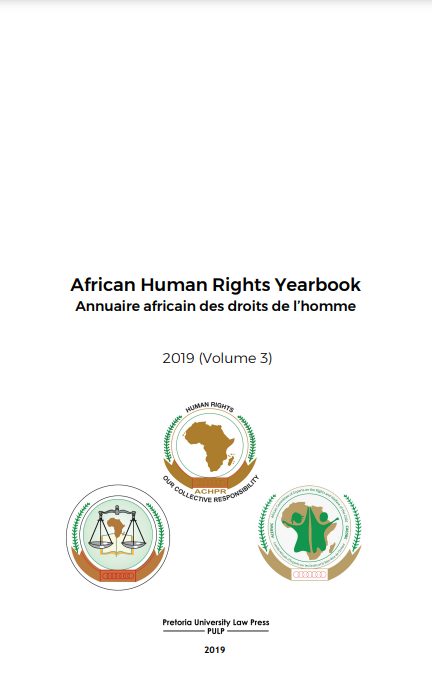Mental health and exploitation, violence and abuse: the domestication of articles 5 and 16 of the African Charter on Human and Peoples’ Rights in Ghana and its implication for conventional and traditional mental healthcare
DOI:
https://doi.org/10.29053/2523-1367/2019/v3a9الكلمات المفتاحية:
mental health، right to health، freedom from exploitation، violence and abuse، freedom from inhumane treatment، Mental Health Act، Ghanaالملخص
ABSTRACT:This article assesses the critical situation of inhumane and degrading treatment in the mental healthcare practice through a review of the interaction between the right to health and the right to be free from exploitation, violence and abuse. The article reflects on the domestication of articles 5 and 16 of the African Charter on Human and Peoples’ Rights and the status of exploitation, violence and abuse in conventional and traditional mental healthcare in Ghana. Since the enactment of the Ghanaian new and progressive mental health law in 2012, specific measures have been put in place to advance the protection of persons within the mental healthcare setting: mental healthcare workers, including traditional and faith-based practitioners, have been trained on human rights; guidelines have been published; and programmes such as the QualityRights initiative have been launched. A normative analysis, combined with literature review, interviews and field visits, help to uncover barriers impeding implementation of the law and reveal gaps that remain, which automatically leaves room for exploitation, violence and abuse. The paradigm shift from a rather paternalistic approach in mental healthcare to one that promotes and respects autonomy and dignity is slow. There is still much to be desired. This article argues that there is a need to reassess or further define domestic legal provisions allowing for involuntary treatment and restraints, establish a stronger human rights oversight body, strengthen cooperation between the formal and informal mental healthcare providers, and create a legal forum where persons whose rights have been infringed can seek redress. Ultimately, these advancements could ensure that the provided right, namely to be free from exploitation, violence and abuse in mental healthcare, translates into actual change.
TITRE ET RÉSUMÉ EN FRANCAIS: Santé mentale et exploitation, violence et abus: l’incorporation en droit interne des articles 5 et 16 de la Charte africaine des droits de l’homme et des peuples et son incidence sur le système conventionnel et traditionnel des soins de santé mentale au Ghana RÉSUMÉ:
Cette contribution examine la question des traitements inhumains et dégradants dans la pratique des soins de santé mentale à travers une analyse de l’interaction entre le droit à la santé et le droit de ne pas être soumis à l’exploitation, à la violence et aux abus. L’article se penche sur l’incorporation en droit interne des articles 5 et 16 de la Charte africaine des droits de l’homme et des peuples et sur l’état des lieux de l’exploitation, de la violence et des abus dans les soins de santé mentale conventionnels et traditionnels au Ghana. Depuis que la loi sur la santé mentale au Ghana a été promulguée en 2012, des mesures spécifiques ont été mises en place pour renforcer la protection des personnes impliquées dans le système des soins de santé mentale: des agents de santé mentale, notamment les tradi-thérapeutes et guérisseurs religieux, ont suivi une formation sur les droits de l’homme; des directives ont été publiées; et des programmes tels que l’initiative « Quality Rights » ont été mis en œuvre. Cette contribution se fonde sur une analyse normative et doctrinale, d’entretiens et de visites de terrain pour appréhender les obstacles à la mise en œuvre de la loi et de révéler les lacunes qui subsistent. Ces dernières continuent à causer l’exploitation, la violence et les abus. Le changement de paradigme, c’est-à-dire d’une approche paternaliste en matière de santé mentale vers une approche qui favorise et respecte l’autonomie et la dignité, est plutôt lent. Il reste donc fort à faire. Cette contribution postule qu’il est nécessaire de réévaluer ou de définir les dispositions légales nationales permettant un traitement et des contraintes involontaires, de mettre en place un organe de protection des droits de l’homme plus efficace, de renforcer la coopération entre les prestataires formels et informels de soins de santé mentale et de créer un forum juridique où les victimes des violations des droits de l’homme peuvent demander réparation. À terme, ces progrès pourraient faire en sorte que le droit prévu, à savoir de ne pas être soumis à l’exploitation, à la violence et aux mauvais traitements en matière de santé mentale, se traduise en un changement réel.


